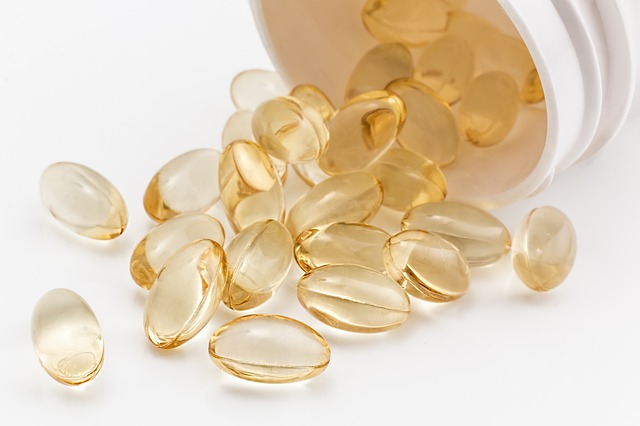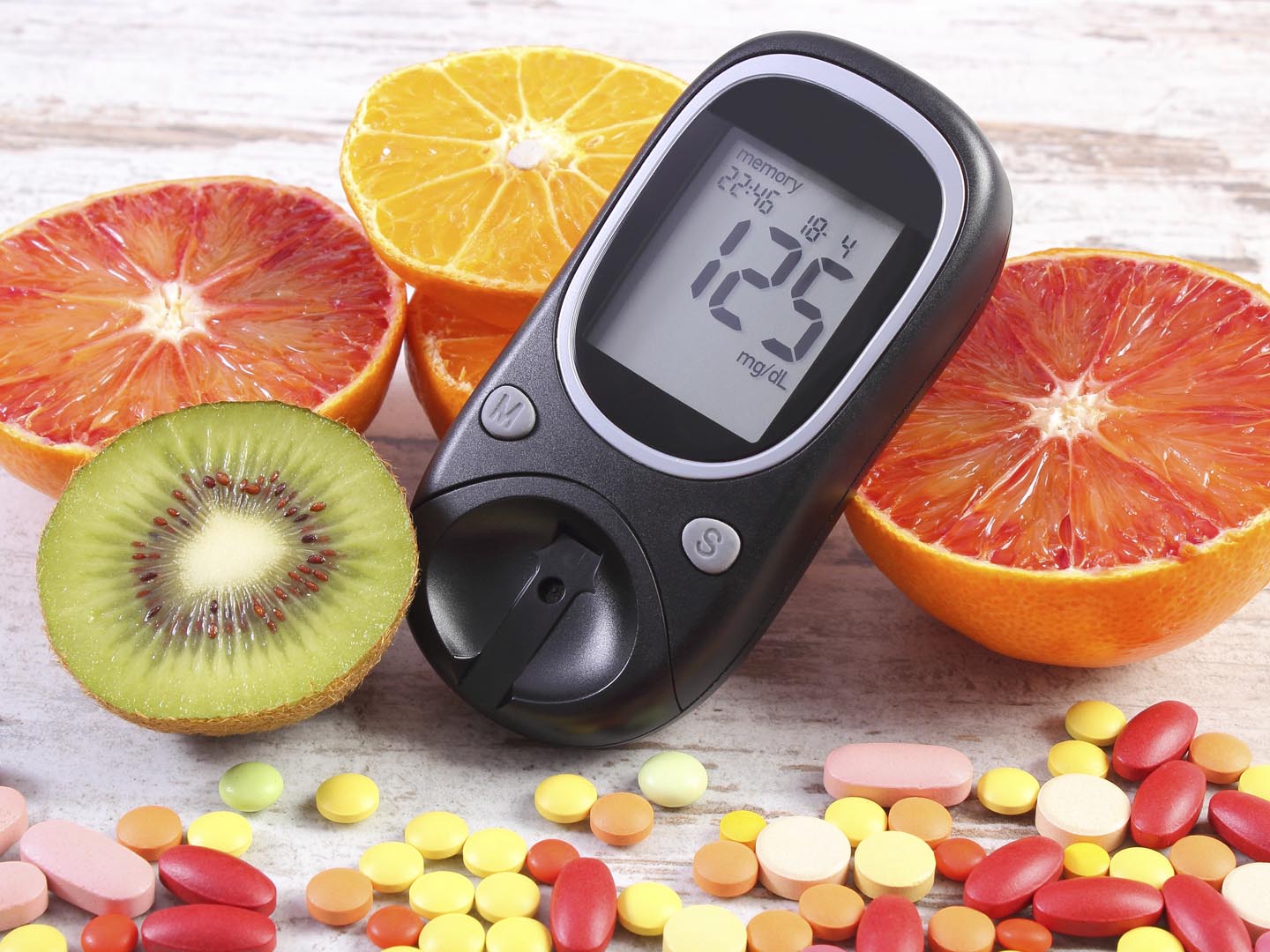
Diabetics
Share
Diabetes: Causes, Symptoms and Supplements
Diabetes is a chronic condition that affects millions of people worldwide. It is a condition that requires constant attention and management to maintain healthy glucose levels. While medication and lifestyle changes are crucial in managing diabetes, dietary supplements can play a significant role in improving overall health and reducing the risk of complications.
In this article, we will discuss the importance of dietary supplements for diabetics and the top essential supplements recommended by experts. Additionally, we will address the importance of choosing the right supplements for your unique diabetic needs. So, let's dive in and explore the best supplements for diabetics.
What is diabetes?
Diabetes is a disease that affects how the body uses blood sugar (glucose). Glucose is an important source of energy for the cells that make up the muscles and tissues. It's also the brain's main source of fuel.
| Characteristic | Description |
|---|---|
| Definition | Chronic metabolic disorder characterized by high blood sugar levels due to inadequate insulin production or ineffective insulin utilization. |
| Types | Type 1 diabetes, Type 2 diabetes, Gestational diabetes, and other rare forms. |
| Causes | Type 1: Autoimmune destruction of insulin-producing cells. Type 2: Insulin resistance and impaired insulin secretion. Gestational: Hormonal changes during pregnancy. |
| Symptoms | Frequent urination, excessive thirst, unexplained weight loss, fatigue, blurred vision, slow healing of wounds, and increased susceptibility to infections. |
| Risk Factors | Family history, obesity, sedentary lifestyle, unhealthy diet, age, ethnicity, and gestational diabetes during pregnancy. |
| Diagnosis | Fasting plasma glucose test, oral glucose tolerance test, HbA1c test, and random plasma glucose test. |
| Treatment | Type 1: Insulin therapy. Type 2: Lifestyle modifications (diet, exercise) and sometimes oral medications or insulin. Gestational: Blood sugar monitoring, diet, exercise, and sometimes insulin. |
| Complications | Cardiovascular disease, kidney disease, nerve damage (neuropathy), eye damage (retinopathy), foot ulcers, and increased risk of infections. |
| Prevention | Maintaining a healthy weight, regular exercise, balanced diet, avoiding tobacco, managing blood pressure and cholesterol levels, and regular check-ups. |
| Management | Monitoring blood sugar levels, taking medications as prescribed, following a healthy diet, engaging in regular physical activity, and managing stress. |
| Support | Diabetes education programs, support groups, and healthcare professionals specializing in diabetes care. |
The main cause of diabetes varies by type. But no matter what type of diabetes you have, it can lead to excess sugar in the blood. Too much sugar in the blood can cause damage to organs, blood vessels, and nerves.
There are three major types of diabetes:
- Type 1 diabetes is an autoimmune disease that occurs when the pancreas can't produce enough insulin. Insulin is a hormone that helps glucose enter the cells. People with type 1 diabetes need to take insulin injections or use an insulin pump to manage their blood sugar levels.
- Type 2 diabetes is the most common type of diabetes. It occurs when the body can't use insulin properly or doesn't make enough insulin. This causes glucose to build up in the blood instead of being used by the cells. Type 2 diabetes can sometimes be managed with healthy eating and regular exercise, but may also require medications or insulin therapy.
- Gestational diabetes is a temporary form of diabetes that occurs during pregnancy. It affects how the body uses glucose and can cause high blood sugar levels for both the mother and the baby. Gestational diabetes usually goes away after the baby is born, but it may increase the risk of developing type 2 diabetes later in life for both mother and child.
What are the symptoms of diabetes?
Some of the common symptoms of diabetes are:
- Feeling more thirsty than usual
- Urinating more often
- Losing weight without trying
- Feeling tired and weak
- Having blurry vision
- Having slow-healing sores or infections
- Having tingling or numbness in the hands or feet

Some people with diabetes may not have any symptoms, especially if they have prediabetes or type 2 diabetes. Prediabetes is a condition where blood sugar levels are higher than normal, but not high enough to be diagnosed as diabetes. Prediabetes can lead to type 2 diabetes if not treated.
How can supplements help with diabetes?
Supplements are products that contain vitamins, minerals, herbs, or other substances that may have health benefits. Some supplements may help lower blood sugar levels or improve insulin sensitivity for people with diabetes. However, supplements are not a substitute for medication or a healthy diet and lifestyle. They should only be used under the guidance of a health care provider.
What are some recommendations from drsous.ca?
DrSous.ca is a website that provides health research and supplements to overcome various conditions, including diabetes. Some of the recommendations from drsous.ca are:
- Eat a balanced diet that includes whole grains, fruits, vegetables, lean protein, healthy fats, and low-fat dairy products. Avoid foods that are high in sugar, salt, fat, and calories.
- Exercise regularly for at least 30 minutes a day, five days a week. Choose activities that you enjoy and that suit your fitness
We offer various supplements to overcome this health conditions, such as Ginkgo Biloba + Ginseng, Ashwagandha, Moringa Pure, Lion’s Mane Mushroom, and B-12 Drops1. You can also find other products that may help lower blood sugar, such as cinnamon and aloe vera, or Glucerna meal replacement shakes.
Check the supplements we recommend for this conditions:
- 118. DrSous.Ca Ginkgo Biloba + Ginseng: These herbs may improve blood circulation and protect against oxidative stress, which can damage cells and tissues. They may also lower blood sugar levels and improve insulin sensitivity.
- 102. DRSOUS.CA Ashwagandha helps individuals calm stress hormones 60 Capsules Bottle: This herb may help reduce stress hormones and inflammation, which can affect blood sugar levels and insulin resistance. It may also improve mood and energy levels.
- 131. DrSous.Ca Moringa Pure 60 Capsules Bottle: This plant may have anti-diabetic properties, such as lowering blood sugar levels, improving cholesterol levels, and reducing oxidative stress. It may also provide antioxidants, vitamins, minerals, and amino acids that support overall health.
- 128. DRSOUS.CA Lion's Mane Mushroom memory, focus and brain health: This fungus may enhance brain function and nerve growth, which can be affected by diabetes. It may also lower blood sugar levels and improve insulin sensitivity.
- 157. B-12 Drops: This vitamin may prevent or treat vitamin B-12 deficiency, which can cause nerve damage and anemia in people with diabetes. Vitamin B-12 may also help lower homocysteine levels, which are linked to cardiovascular disease.
154. DRSOUS.CA Vitamin D3 helps maintain bone density, strength and healthy cell growth
108. DRSOUS.CA Birch Chaga Truffles
107. DRSOUS.CA Birch Chaga Microbiome Wellness Powder
106. DrSous.Ca Birch Chaga Microbiome Wellness 30 Capsules
160. Magnesium Glycinate
104. DrSous.Ca Bee Pearl Powder smoothie propolis royal jelly
103. DrSous.Ca Bee Pearl pollen nectar enzyme blend 30 capsules
The Role of Supplements in Diabetes Management: A Comprehensive Guide
Diabetes is a chronic disease that affects millions of people worldwide. Managing this condition requires a combination of medication, lifestyle changes, and sometimes, even dietary supplements. In this article, we will explore the role of certain supplements in diabetes management, backed by scientific research and expert opinions.
Understanding Diabetes: A Global Health Concern
Diabetes is a chronic metabolic disorder characterized by high blood sugar levels. It occurs when the body either doesn't produce enough insulin or cannot effectively utilize the insulin it produces. Insulin is a hormone that helps regulate blood sugar (glucose) levels and allows it to enter the body's cells to be used as energy.
There are two main types of diabetes: type 1 and type 2. Type 1 diabetes is an autoimmune condition where the immune system mistakenly attacks and destroys the insulin-producing cells in the pancreas. Type 2 diabetes, on the other hand, is primarily a result of lifestyle factors such as obesity, sedentary lifestyle, and poor dietary choices. It is characterized by insulin resistance, where the body's cells become less responsive to insulin.
The Importance of Diabetes Management
Proper management of diabetes is essential to prevent complications such as cardiovascular disease, kidney damage, nerve damage, and vision problems. While medication, regular exercise, and a healthy diet are the cornerstones of diabetes management, certain dietary supplements may also play a supportive role in improving blood sugar control and overall well-being.

Essential Supplements for Diabetics
According to a study conducted by AG Pittas et al., there are five essential supplements that may benefit individuals with diabetes: magnesium, vitamin D, omega-3 fatty acids, chromium, and alpha-lipoic acid. Let's explore the potential benefits of each of these supplements in diabetes management:
Magnesium: A Key Mineral for Blood Sugar Control
Magnesium is an essential mineral that plays a crucial role in numerous bodily functions, including insulin secretion, glucose control, and carbohydrate metabolism. Research suggests that magnesium deficiency may contribute to the development of type 2 diabetes and poor blood sugar control. Supplementing with magnesium has been shown to improve insulin sensitivity and regulate blood sugar levels in individuals with diabetes.
Vitamin D: Shedding Light on Diabetes Prevention
Vitamin D is not just important for bone health; it also plays a role in immune function, inflammation regulation, and insulin sensitivity. Studies have found an association between vitamin D deficiency and an increased risk of developing type 2 diabetes. Supplementing with vitamin D has shown promising results in improving insulin sensitivity and blood sugar control in individuals with diabetes.
Omega-3 Fatty Acids: Powerful Anti-inflammatory Agents
Omega-3 fatty acids are polyunsaturated fats that have been extensively studied for their health benefits. These fatty acids have potent anti-inflammatory properties and can help reduce inflammation in the body. Inflammation is a key factor in the development of insulin resistance and other complications associated with diabetes. Omega-3 supplementation may improve insulin sensitivity and lipid profiles, thereby contributing to better diabetes control.
Chromium: Enhancing Insulin Function
Chromium is a trace mineral that plays a role in glucose metabolism and insulin signaling. Research suggests that chromium supplementation may improve insulin sensitivity and enhance glucose uptake by the body's cells. It may also have a positive impact on glycemic control, making it a potentially beneficial supplement for individuals with diabetes.
Alpha-Lipoic Acid: Combating Oxidative Stress
Alpha-lipoic acid (ALA) is a powerful antioxidant that has been shown to reduce oxidative stress, which is elevated in individuals with diabetes. ALA supplementation may improve insulin sensitivity, reduce inflammation, and enhance glucose uptake inthe body's cells. Several studies have demonstrated the potential benefits of ALA supplementation in improving blood sugar control and reducing diabetic neuropathy symptoms.

While these supplements show promise in diabetes management, it is crucial to note that they should not replace prescribed medications or a healthy lifestyle. Supplements should be used as adjunctive therapies under the guidance of a healthcare professional. Furthermore, it is essential to consider individual differences and consult with a healthcare provider before incorporating any supplements into your diabetes management plan.
The Importance of Consulting a Healthcare Professional
Before starting any new supplement regimen, it is vital to consult with a healthcare professional who is knowledgeable about your medical history and current condition. They can evaluate your specific needs, determine potential interactions with medications you may be taking, and provide personalized recommendations.
Additionally, healthcare professionals can help monitor your progress, assess the effectiveness of supplements, and make any necessary adjustments to your treatment plan. Diabetes management is highly individualized, and the guidance of a healthcare professional is invaluable in achieving optimal results.
Conclusion
Diabetes is a complex condition that requires comprehensive management strategies. While supplements can potentially support diabetes control, they should always be used in conjunction with prescribed medications, a healthy diet, regular exercise, and other lifestyle modifications.
Magnesium, vitamin D, omega-3 fatty acids, chromium, and alpha-lipoic acid are among the supplements that have shown promise in improving blood sugar control and overall well-being in individuals with diabetes. However, it is essential to consult with a healthcare professional before incorporating these or any other supplements into your diabetes management plan.

Remember that each person's experience with diabetes is unique, and what works for one individual may not work for another. By working closely with a healthcare professional and adopting a holistic approach to diabetes management, you can take control of your condition and improve your overall health and well-being.
What supplements are best for diabetes?
Can supplements treat diabetes?
What is the 500 rule in diabetes?
What herbal supplements are good for diabetics?
What is the 15-15 rule for diabetes?
Work Cited
C Juliano."Methylglyoxal, the major antibacterial factor in manuka honey: an alternative to preserve natural cosmetics?."https://www.mdpi.com/386086
Meng, X., Li, Q., Shi, R., Chang, J., Chang, H., & Li, M. (2021). Dietary supplements for diabetes: An overview of clinical studies. Journal of Future Foods, 6, 100051. https://doi.org/10.1016/j.jeff.2021.100051
What is diabetes? - Diabetes Canada. https://diabetes.ca/about-diabetes/what-is-diabetes.
What is diabetes? | CDC. https://www.cdc.gov/diabetes/basics/diabetes.html.
Diabetes - Symptoms and causes - Mayo Clinic. https://www.mayoclinic.org/diseases-conditions/diabetes/symptoms-causes/syc-20371444.
Diabetes - Wikipedia. https://en.wikipedia.org/wiki/Diabetes.AG Pittas et al. (2007). The role of vitamin D and calcium in type 2 diabetes. A systematic review and meta-analysis. Journal of Clinical Endocrinology & Metabolism, 92(6), 2017-2029.